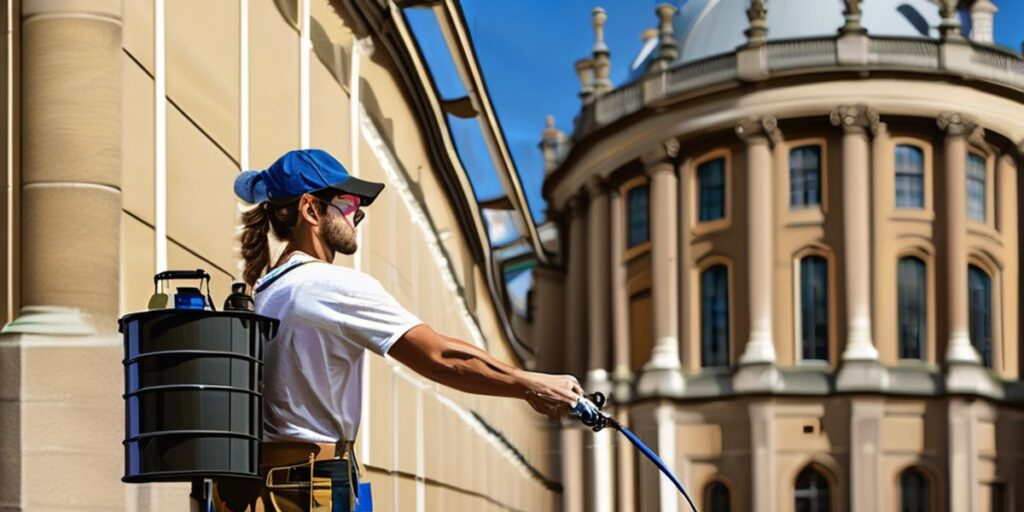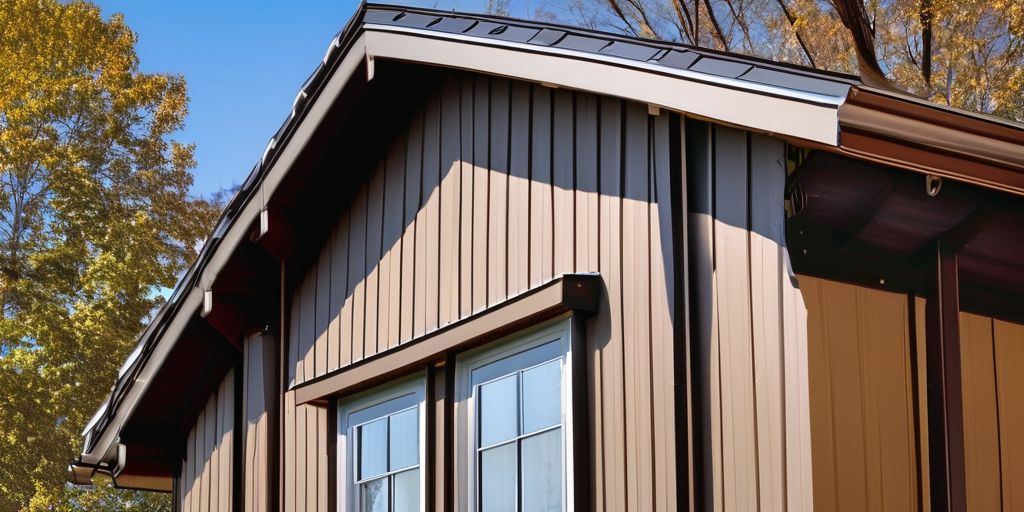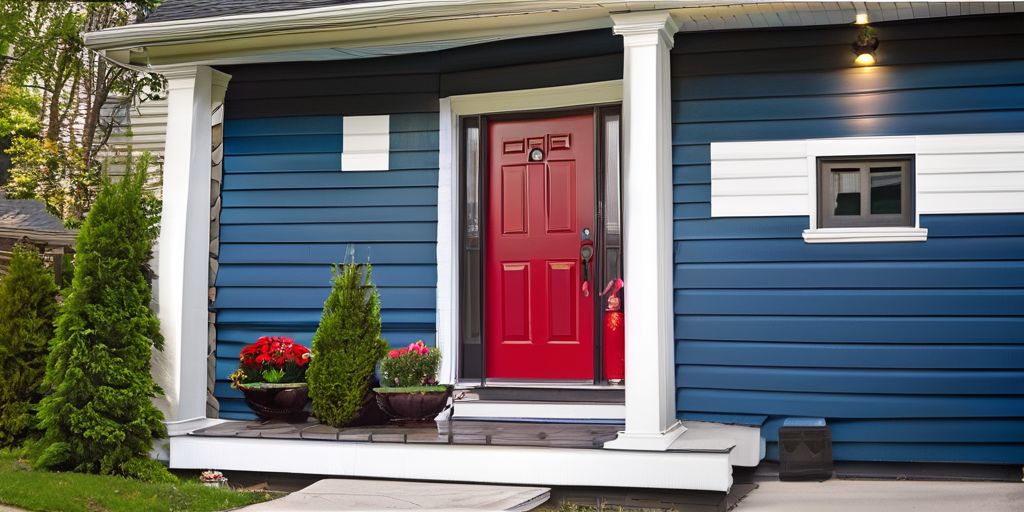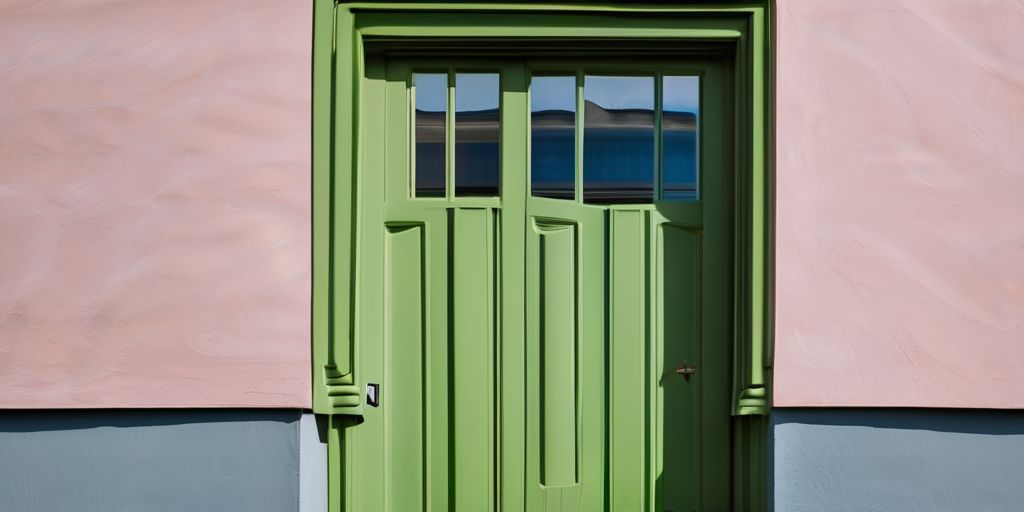When it comes to professional spray painting in Cambridge, selecting the proper equipment is crucial for achieving high-quality results. From choosing the right spray gun to ensuring proper ventilation and safety measures, each aspect plays a significant role in the painting process. This article provides valuable insights into selecting the ideal equipment for professional spray painting in Cambridge.
Key Takeaways
- Selecting the right spray gun is essential for achieving the desired finish and efficiency.
- Quality paint brands can significantly impact the final outcome of your project.
- Proper ventilation is crucial to ensure a safe and healthy working environment.
- Wearing protective gear, such as goggles and masks, is essential to prevent exposure to harmful fumes and particles.
- Regular maintenance of spray painting equipment is necessary to prolong its lifespan and ensure consistent performance.
Choosing the Right Spray Gun
Types of Spray Guns
Selecting the right spray gun is crucial for achieving a professional finish in spray painting. There are several types of spray guns available, each suited for different applications and preferences:
- HVLP (High Volume Low Pressure): Known for their efficiency and reduced overspray, making them environmentally friendly and cost-effective.
- LVLP (Low Volume Low Pressure): Similar to HVLP but operates at lower pressures, ideal for fine detail work.
- Airless Spray Guns: Use high pressure to atomize paint, suitable for large surfaces and thick coatings.
- Gravity Feed Spray Guns: Feature a top-mounted hopper, excellent for small to medium projects with quick color changes.
- Siphon Feed Spray Guns: Traditional design with a bottom-mounted cup, often used for larger volumes of paint.
When considering a spray gun, pay attention to the nozzle size, which determines the finish quality and is dependent on the type of paint used. Proper maintenance, including regular cleaning and inspection, is essential to extend the life of the equipment and ensure consistent performance.
Maintenance Tips: Regularly clean and inspect your spray gun to prevent clogs and ensure optimal performance. Use suitable fillers, patching compounds, and sanding to repair surfaces before painting.
Spray painting offers efficient, uniform coverage, especially ideal for large areas. It provides speed, quality, and visual appeal over traditional painting methods. Always prepare your equipment as per instructions, test the spray pattern, adjust pressure settings, and clean nozzles to achieve the best results.
Features to Consider
When selecting a spray gun for professional painting, it’s crucial to consider a range of features that can affect both the outcome and the ease of the painting process. Ergonomics and comfort are essential, as they can significantly impact the user’s ability to work for extended periods without fatigue. Look for a spray gun with a comfortable grip and one that is well-balanced to ensure precision and control.
Another key feature is the adjustability of the spray pattern. This allows for versatility in application, whether you need a broad spray for large surfaces or a fine mist for detailed work. The size of the nozzle and the type of material being sprayed will also dictate the appropriate spray gun to use.
- Nozzle Size: Choose based on the thickness of the paint.
- Spray Pattern: Adjustable for different tasks.
- Material Compatibility: Ensure it works with your paints and coatings.
Maintenance is also a critical aspect to consider. A spray gun that is easy to clean and maintain will save time and extend the equipment’s life.
In the context of Cambridge, local on-site spray painting services often emphasize the importance of selecting a spray gun that can handle the diverse architectural styles and materials found throughout the city, from the historic buildings around the University of Cambridge to the modern commercial districts.
Maintenance Tips
After selecting the right spray gun and ensuring it’s well-maintained, the longevity and performance of your equipment largely depend on regular upkeep. Proper maintenance is crucial for achieving the best results and extending the life of your spray painting equipment.
- Always clean your spray gun immediately after use to prevent paint from drying and clogging the mechanisms.
- Periodically check and replace any worn parts, such as seals and filters, to maintain optimal performance.
- Lubricate moving parts regularly to ensure smooth operation and prevent rust.
Remember, a well-maintained spray gun will provide a consistent spray pattern and pressure, which is essential for professional-quality finishes.
For specific maintenance procedures, always refer to the manufacturer’s manual. As a general rule, thinning your paint appropriately can also help maintain your spray gun. For example, adding a half cup of water to every gallon of paint can be a good starting point for thinning latex paint. However, it’s important to consult the paint sprayer documentation for the correct ratio. If you encounter any mistakes during painting, it’s best to clean them up while they’re still wet for an easier fix.
Selecting the Ideal Paints and Primers
Quality Paint Brands
When selecting paint brands for professional spray painting, it’s crucial to prioritize quality over cost. High-quality paints ensure better coverage, longevity, and a more professional finish. Here are some factors to consider:
- Consistency and Viscosity: The paint should have a uniform consistency and appropriate viscosity for spray application.
- Pigment Density: Look for paints with high pigment density for vibrant and lasting colors.
- Drying Time: Consider the drying time, which can impact your project timeline.
- Environmental Impact: Opt for paints with lower volatile organic compounds (VOCs) for a reduced environmental footprint.
Durability is a key factor, as professional exterior painters in Burlington and Brantford focus on precision, expertise, and sustainability. They prioritize thorough preparation, attention to detail, and durable finishes for homes.
In the context of professional spray painting service, efficiency and precision are paramount. Skilled painters, thorough preparation, and timely completion contribute to lasting results. Advanced technology is employed for exceptional commercial property painting.
While the choice of paint can vary depending on the project, these guidelines will help ensure a high-quality finish that stands the test of time. Remember, the right paint can make all the difference in the outcome of your work.
Compatibility with Surfaces
Selecting the right paint for a professional spray painting job involves understanding the compatibility between the paint and the surface to be coated. Different surfaces require different paint formulations to ensure proper adhesion, durability, and finish quality.
- Metal surfaces: Require paints with excellent adhesion and rust prevention properties.
- Wood surfaces: Need paints that can penetrate the wood and protect it from moisture.
- Plastic surfaces: Should be coated with paints designed for flexibility to accommodate the expansion and contraction of the material.
- Masonry: Benefits from breathable coatings that allow moisture to escape.
It’s essential to choose weather-resistant and eco-friendly coatings, especially for exterior projects. Proper surface preparation is crucial; it can include cleaning, sanding, or priming, depending on the material. In Cambridge, leveraging local knowledge about the climate and environmental conditions can inform paint selection. For instance, the proximity to the River Cam might influence the choice of moisture-resistant paints for outdoor projects.
Engaging professional painters is recommended to ensure that the paint application is done correctly and to achieve the best possible results.
Primer Selection Guide
After selecting your spray gun and paints, the next critical step is choosing the right primer. A good primer can make a significant difference in the final outcome of your painting project. Here are some guidelines to help you select the best primer for your needs:
- Consider the material you will be painting. Different surfaces require different primers to ensure proper adhesion and coverage.
- Look for primers that are specifically designed for spray applications. These products are formulated to provide a smooth base for the topcoat.
- Assess the environment where the painted item will be used. For outdoor projects, a primer with UV protection and moisture resistance is crucial.
When it comes to professional spray painting, the foundation is just as important as the topcoat. A well-chosen primer can enhance the durability and aesthetics of your work.
Remember, achieving color uniformity is crucial for visual harmony. Select a primer that will help create a consistent base for the final color. This is especially important for large projects where any variation can be noticeable.
Lastly, always test your chosen primer on a small area before committing to the entire project. This will allow you to see how the primer interacts with both the surface and the paint.
Ensuring Proper Ventilation and Safety Measures
Importance of Ventilation
Proper ventilation is not just a matter of comfort; it’s a critical component for safety and the quality of your spray painting work. Ensuring a well-ventilated workspace helps to disperse paint fumes and airborne particles, which can be harmful to both the painter and the overall paint job.
- Ventilation is key to maintaining a safe environment. It helps to reduce the concentration of volatile organic compounds (VOCs) and other hazardous substances.
- Circulating the air with a fan can aid in quicker drying times for paint. This is especially important when working on multiple coats.
- Opening windows is a simple yet effective way to let in fresh air and assist the paint-drying process.
Remember, priming bricks and protecting surroundings are crucial for exterior spray painting. Proper equipment setup and protective measures ensure safety and efficiency in the process.
When working on detailed tasks such as spray painting window frames, maintaining quality and consistency is paramount. This involves calibrating equipment, using consistent techniques, and minimizing downtime through preventative maintenance and efficient operations.
Protective Gear Recommendations
When engaging in professional spray painting, personal safety should be a top priority. Proper protective gear is essential to safeguard against the potential hazards associated with paint fumes and overspray. Here are some key items to include in your safety kit:
- Respirators: A high-quality respirator is crucial for filtering out harmful vapors and particulates. Ensure it fits snugly and is rated for paint fumes.
- Safety Goggles: Protect your eyes from harmful chemicals and debris with impact-resistant goggles.
- Gloves: Use nitrile or neoprene gloves to prevent skin contact with paint and solvents.
- Coveralls: Disposable or washable coveralls can shield your clothing and skin from paint splashes.
Remember, the right protective gear not only ensures your safety but also enhances the quality of your work by preventing contamination.
It’s also important to regularly check and replace your protective gear to maintain its effectiveness. A respirator’s filters, for example, should be changed according to the manufacturer’s guidelines or whenever you detect the smell of vapors while wearing it.
Safety Precautions to Follow
When undertaking professional spray painting, safety is paramount. Always follow the manufacturer’s drying time recommendations to avoid any hazards associated with wet paint. It’s essential to wear the appropriate protective gear to shield yourself from harmful fumes and potential skin or eye irritants.
- Ensure that all spray painting is done in a well-ventilated area to prevent the buildup of toxic fumes.
- Proper disposal of paint and materials is not only crucial for safety but also for environmental protection.
Remember, taking the time to set up a safe working environment is an investment in your health and the quality of your work.
While the focus is on safety within the workspace, it’s also important to be mindful of the surrounding area. In Cambridge, for example, the proximity to the River Cam requires extra diligence to prevent any contaminants from affecting the local ecosystem.
Ensuring proper ventilation and safety in your home or business is crucial for maintaining a healthy environment. At We Paint Siding, we specialize in providing top-quality exterior painting services that not only enhance the aesthetic appeal of your property but also protect it from the elements. Our expert team is equipped to handle a variety of surfaces, including aluminum and vinyl siding, with precision and care. Don’t settle for a faded or outdated look; revitalize your property with our cost-effective solutions. Visit our website to learn more about our services, view stunning before-and-after galleries, and book your free estimate today. Let us help you transform your space with our proven painting system!
Conclusion
In conclusion, selecting the proper equipment for professional spray painting in Cambridge is crucial for achieving high-quality results. By considering factors such as the type of project, the surface to be painted, and the desired finish, painters can choose the right tools to ensure efficiency and precision. Investing in quality equipment not only enhances the final outcome but also improves the overall painting experience. Remember, the right tools make all the difference in achieving professional results.
Frequently Asked Questions
What types of spray guns are suitable for professional spray painting in Cambridge?
The types of spray guns suitable for professional spray painting in Cambridge include HVLP, airless, and conventional spray guns.
What features should I consider when choosing a spray gun for professional use?
When choosing a spray gun for professional use, consider factors such as adjustable pressure settings, nozzle size, and ease of cleaning.
How can I maintain my spray gun to ensure optimal performance?
To maintain your spray gun for optimal performance, regularly clean the gun after use, check for clogs, and lubricate moving parts as needed.
Which paint brands are recommended for professional spray painting projects in Cambridge?
Quality paint brands recommended for professional spray painting projects in Cambridge include Sherwin-Williams, Benjamin Moore, and PPG.
How do I determine the compatibility of paints with different surfaces for spray painting?
To determine paint compatibility with surfaces, consider factors such as the surface material, primer requirements, and the type of paint being used.
What safety precautions should I follow when conducting professional spray painting in Cambridge?
Safety precautions for professional spray painting in Cambridge include wearing protective gear, working in well-ventilated areas, and following manufacturer’s instructions for handling paints and equipment.








